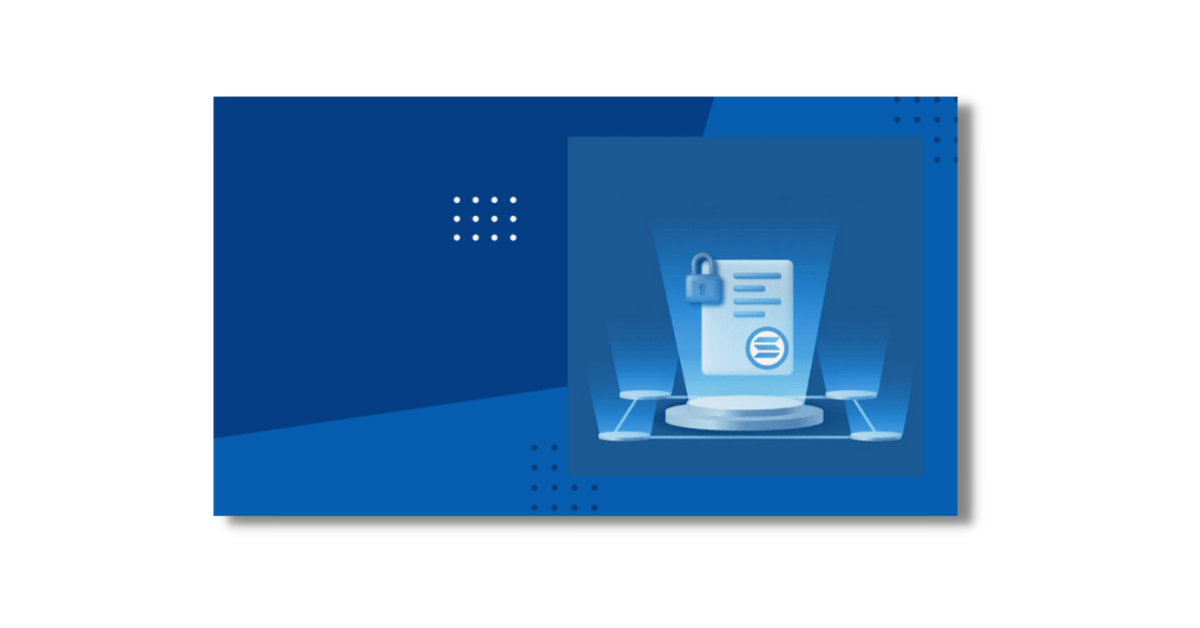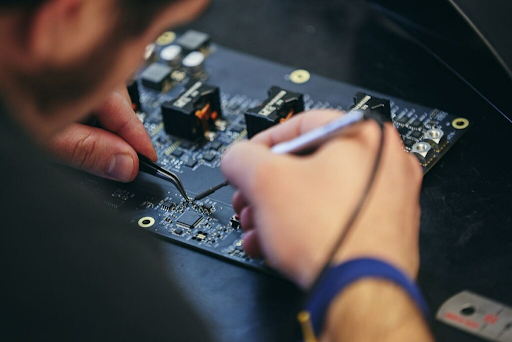How Solana Work on Smart Contracts
Solana is designed to function as a platform for developing decentralized applications and smart contracts. It operates using its own consensus algorithm, Proof of History (PoH). This algorithm works by recording the order of all transactions that occur on the network. This record then used to validate the current state of the network.
In addition, Solana uses a virtual machine to execute smart contracts, called the Solana Virtual Machine (SVM). This allows developers to write code that is executed on the blockchain, allowing them to create decentralized applications. Solana also utilizes a native programming language, called Move, which is used to write smart contracts.
Solana is optimized for speed, allowing users to process transactions at speeds of up to 50,000 transactions per second (TPS). This scalability is achieved by sharding the network – splitting it into multiple shards that can process transactions simultaneously.
Solana also provides a layer of security by combining a distributed validator network and a Byzantine Fault Tolerance (BFT) consensus algorithm. This ensures that transactions are valid and secure.
Overall, Solana provides the tools needed to develop decentralized applications and smart contracts, and its scalability and security make it an ideal platform for developing and deploying these applications. With its unique consensus algorithm and virtual machine, Solana is a powerful and secure platform for developing decentralized applications.
Building of an Solana Smart Contracts
- Gather Your Resources: Before you start coding your smart contract, gather the resources you will need to complete the task. You will need a development environment, such as a text editor, an integrated development environment, or a compiler. You should also research the Solana blockchain and familiarize yourself with the language used to create smart contracts on the platform.
- Write the Code: Once you have your resources, you can start coding your smart contract. You should use the language supported by the Solana blockchain, which is Rust or C. Make sure you include all the necessary functions and features that your smart contract needs to run properly.
- Test and Debug: Once you have written your code, you should test and debug it to ensure it is working properly. This is a critical step that should not overlooked. Solana offers a debugging tool that can help you identify any errors in your code.
- Deploy Your Contract: Once you have tested and debugged your smart contract, you can deploy it to the Solana blockchain. Make sure you follow all the instructions provided by the platform and have a plan for how you will manage your contract once it is live.
- Monitor and Maintain: After deploying
Architecture of Solana Smart Contract
Solana Smart Contracts designed to build on the speed, scalability, and security of the Solana blockchain. They written in Rust, and developers are able to deploy them directly on the blockchain. Smart contracts compiled into a WebAssembly (WASM) bytecode, which is validated and run on the Solana blockchain. The WASM bytecode stored on-chain, and can called by other contracts or messages from Solana clients. Smart contracts able to access the blockchain data, and can used to store, transfer, and manage digital assets. They are also able to interact with other contracts, allowing for a wide range of use cases.
Benefits of Solana smart contract development
- Fast Transaction Speed: With Solana’s distributed ledger, transactions can processed at speeds of up to 50,000 transactions per second. This is much faster than other blockchain platforms, allowing for faster execution of smart contracts.
- Scalability: Solana is able to handle larger transaction volumes and more users than other blockchain platforms. This ensures that it can handle the increased demand for smart contracts as they become more popular.
- Low Fees: Transaction fees on Solana are much lower than on other blockchain networks. This makes it attractive for developers and businesses to use the platform for their smart contract development.
- Security: Solana is built on a secure distributed ledger technology, providing secure platform for developers and businesses to build on.
- Open Source Platform: The Solana platform is open source, meaning developers have access to the source code and can customize it for their own needs. This makes it easy for developers to build applications on the platform.
Additionally, you can read solana price prediction
Eight solana smart contracts
- Account Recovery Smart Contract: This smart contract allows users to recover their account in the event of a lost or forgotten private key.
- Token Escrow Smart Contract: This smart contract enables users to securely transfer tokens between accounts using an escrow process.
- Token Balance Check Smart Contract: This smart contract allows users to query the balance of a given address to ensure they have sufficient funds for a transaction.
- Multi-Signature Smart Contract: This smart contract allows multiple users to authorize a transaction with their private key.
- Atomic Swap Smart Contract: This smart contract enables users to exchange tokens directly between two accounts without the need for a third-party exchange.
- Voting Smart Contract: This smart contract allows users to securely vote on a particular issue.
- Oracle Smart Contract: This smart contract enables users to securely retrieve data from an external source and use it in their smart contract.
- Timelock Smart Contract: This smart contract allows users to lock up funds for a predetermined amount of time.










Leave a Reply